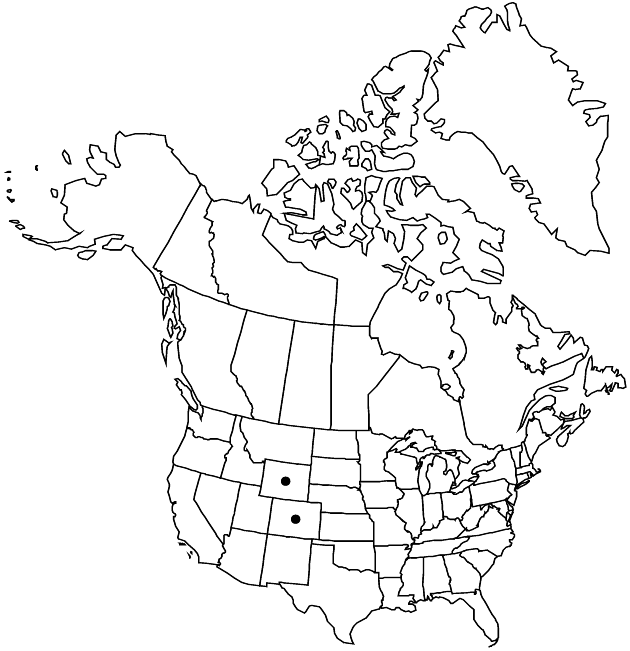Grindelia subalpina
Pittonia 3: 297. 1898.
Biennials or perennials (perhaps flowering first-year), 15–30 (–60) cm. Stems erect, usually reddish, sometimes stramineous, glabrous. Cauline leaf-blades spatulate or oblanceolate to oblong or lanceolate, 15–70 mm, lengths 3–5 (–7) times widths, bases ± cuneate or clasping, margins usually dentate or serrate (teeth apiculate), sometimes entire, apices rounded or obtuse to acute, faces glabrous (or, near margins, scabridulous) and sparsely to densely gland-dotted. Heads usually in open, corymbiform to paniculiform arrays, seldom borne singly. Involucres broadly urceolate to globose, 8–11 × 10–20 mm. Phyllaries in 5–6 series, linear or lanceolate to oblong-lanceolate, apices looped to hooked (outer) or recurved to nearly straight, terete to subulate or acuminate, slightly to moderately resinous. Ray-florets 18–27; laminae 10–15 mm. Cypselae whitish or stramineous, 2.5–5 mm, apices smooth or weakly coronate, faces smooth or finely furrowed; pappi of 4–8 straight, barbellate to barbellulate bristles or setiform awns 2.5–5.5 mm, shorter than disc corollas. 2n = 12.
Phenology: Flowering Jul–Aug.
Habitat: Dry, open, sandy or gravelly slopes, ridges, valleys, stream banks, waste grounds
Elevation: 1600–2900 m
Discussion
Selected References
None.
